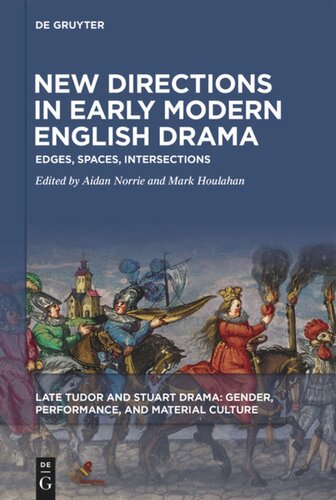

Most ebook files are in PDF format, so you can easily read them using various software such as Foxit Reader or directly on the Google Chrome browser.
Some ebook files are released by publishers in other formats such as .awz, .mobi, .epub, .fb2, etc. You may need to install specific software to read these formats on mobile/PC, such as Calibre.
Please read the tutorial at this link: https://ebookbell.com/faq
We offer FREE conversion to the popular formats you request; however, this may take some time. Therefore, right after payment, please email us, and we will try to provide the service as quickly as possible.
For some exceptional file formats or broken links (if any), please refrain from opening any disputes. Instead, email us first, and we will try to assist within a maximum of 6 hours.
EbookBell Team

4.0
56 reviewsThis collection examines some of the people, places, and plays at the edge of early modern English drama. Recent scholarship has begun to think more critically about the edge, particularly in relation to the canon and canonicity. This book demonstrates that the people and concepts long seen as on the edge of early modern English drama made vital contributions both within the fictive worlds of early modern plays, and without, in the real worlds of playmakers, theaters, and audiences. The book engages with topics such as child actors, alterity, sexuality, foreignness, and locality to acknowledge and extend the rich sense of playmaking and all its ancillary activities that have emerged over the last decade. The essays by a global team of scholars bring to life people and practices that flourished on the edge, manifesting their importance to both early modern audiences, and to current readers and performers.